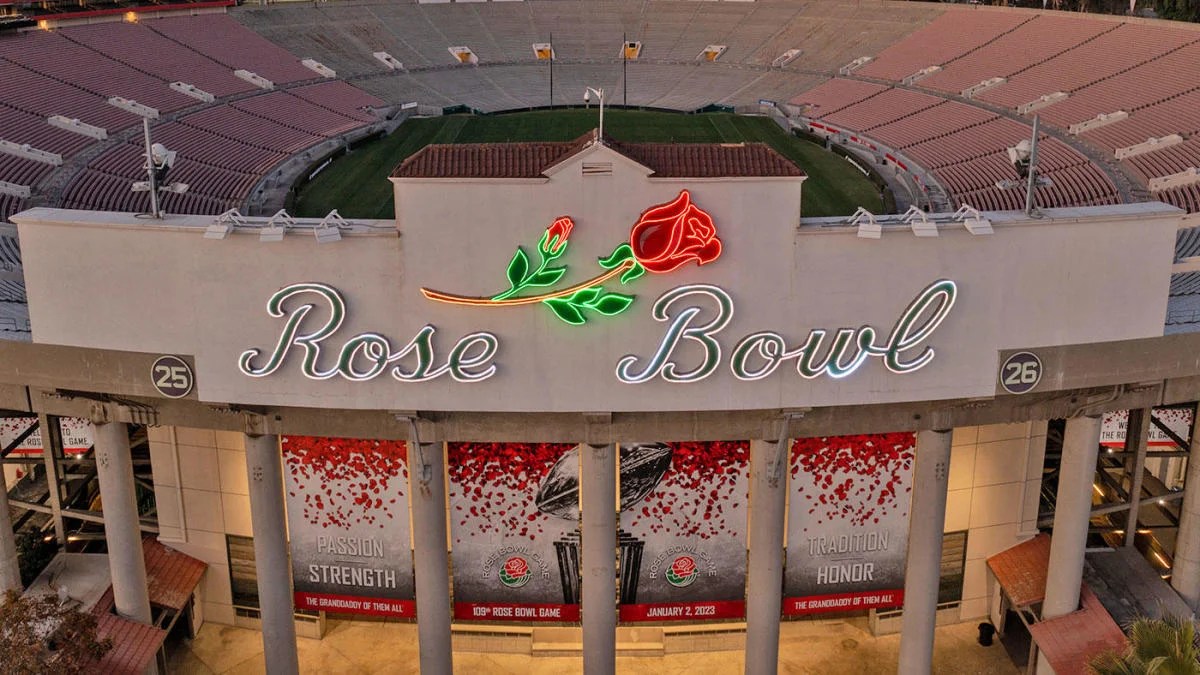Navigating the College Bowl Season
The vibrant tapestry of college football culminates in a series of postseason games known as bowl games. These contests, held during the holiday season and culminating in the national championship game, draw immense viewership and generate significant revenue. But amidst the excitement, one might wonder: just how many college bowl games are played each year, and what is their place in the broader landscape of college football?
The number of bowl games fluctuates slightly from year to year due to various factors, including sponsorship agreements and media contracts. Typically, there are around 40-45 bowl games, showcasing teams from different conferences and divisions. Determining the exact number for a given year requires consulting up-to-date schedules released by the NCAA or other reputable sports sources. This number doesn't include the College Football Playoff National Championship, which is considered separate from the bowl system.
The history of college bowl games dates back to the early 20th century, starting with the Rose Bowl in 1902. Initially conceived as a way to promote tourism and celebrate the New Year, bowl games quickly gained popularity, evolving into significant sporting events. Over the decades, the number of bowl games proliferated, reflecting the growth and commercialization of college football. The current system, with its extensive array of games, generates debate about its value, the selection process, and the overall impact on the student-athlete experience.
The sheer volume of bowl games has led to discussions about the significance of each individual game. Some argue that the proliferation of bowls has diluted the meaning and prestige, particularly for games involving teams with less impressive records. Others maintain that the opportunity to compete in a postseason game, regardless of its perceived stature, provides valuable experience and exposure for players and programs.
One of the core issues surrounding the abundance of bowl games is player participation. With some teams finishing the regular season with losing records, questions arise about the motivation and commitment of players in certain bowl games. The increasing focus on the College Football Playoff has arguably added to this issue, as teams not vying for the national championship may view their bowl game as less significant. This can lead to player opt-outs, further complicating the narrative around the meaning of these contests.
Understanding the number of bowl games provides context for the scope and scale of postseason college football. It highlights the intricate web of conferences, sponsorships, and media deals that shape the sport. This number is also a reflection of the evolution of college football from a primarily regional activity to a national spectacle with a vast and dedicated following.
It's crucial to distinguish between bowl games and the College Football Playoff. The playoff, established in 2014, features the top four teams competing in a semifinal and final to determine the national champion. Bowl games, while still important, are separate from the playoff structure and generally involve teams not participating in the championship pursuit.
There are many online resources to keep track of the bowl game schedule. ESPN, CBS Sports, and the official NCAA website are reliable sources for game dates, times, and participating teams. These resources often provide historical data on past bowl games as well.
Advantages and Disadvantages of Many Bowl Games
| Advantages | Disadvantages |
|---|---|
| Increased exposure for smaller programs | Potential dilution of prestige |
| More postseason opportunities for players | Player opt-outs and motivation concerns |
| Economic benefits for host cities | Focus shifting away from academics |
Frequently Asked Questions:
1. Q: Where can I find the official schedule of college bowl games? A: Reputable sports websites like ESPN, CBS Sports, and the official NCAA website provide updated schedules.
2. Q: How are teams selected for bowl games? A: A combination of factors, including conference standings, rankings, and bowl tie-ins determine bowl eligibility and selection.
3. Q: Are all bowl games equally important? A: While the College Football Playoff games hold the most prestige, other bowl games offer valuable experience and exposure for participating teams.
4. Q: Why do some players opt out of bowl games? A: Some players, particularly those with NFL prospects, may choose to prioritize their health and draft preparation by opting out of bowl games, especially if their team is not in the national championship contention.
5. Q: How much revenue do bowl games generate? A: Bowl games generate significant revenue through television contracts, sponsorships, ticket sales, and tourism.
6. Q: What is the oldest college bowl game? A: The Rose Bowl, first played in 1902, is the oldest college bowl game.
7. Q: How has the number of bowl games changed over time? A: The number of bowl games has increased significantly over the decades, reflecting the growth and commercialization of college football.
8. Q: What are some criticisms of the current bowl system? A: Criticisms include the oversaturation of bowl games, questions about the meaning of certain matchups, and concerns about the academic impact on student-athletes.
In conclusion, understanding the landscape of college bowl games provides a deeper appreciation for the complexities and nuances of college football. While the number of bowl games continues to be a subject of discussion and debate, these postseason contests remain a significant part of the sport's tradition and appeal. They offer opportunities for teams to showcase their skills, for players to gain valuable experience, and for fans to celebrate the culmination of another exciting season. Looking ahead, the future of the bowl system will likely involve further evolution and adaptation to the changing dynamics of college athletics, but their central role in showcasing college football talent will likely endure. By considering the history, significance, and ongoing debates surrounding bowl games, fans can better engage with the sport and appreciate the diverse perspectives surrounding this integral part of the college football season.
The enigmatic gallery of madame liu tso a journey through art and history
The allure of pearl blue car colors
Unlocking the art of the dry fly your tying video guide















